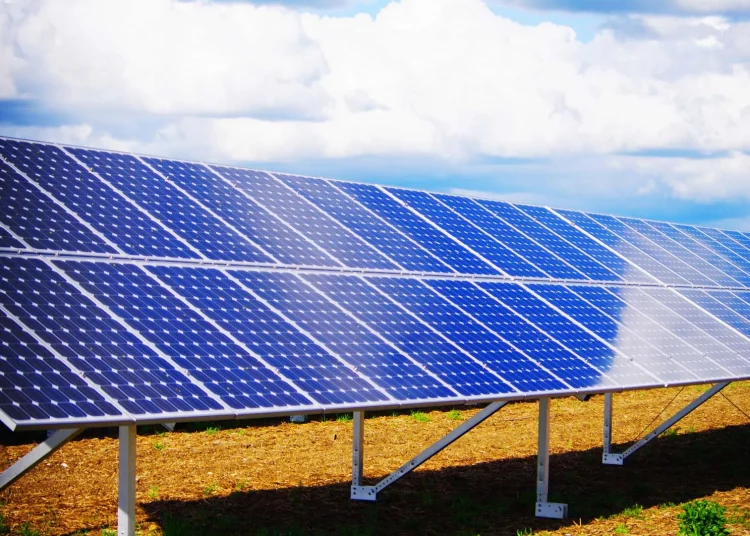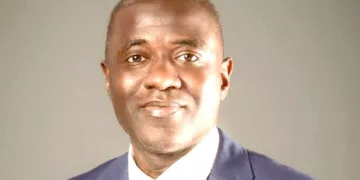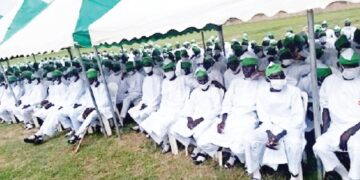Climate-smart investment potential in Nigeria, particularly in the renewable energy sector, is worth over $104billion, the United Kingdom High Commission said. Hence, solar energy providers in Nigeria are seeking to raise additional funds to expand as a surge in diesel prices to run generators pushes companies to switch to the renewable power source.
This is to allow them tap into the opportunities that solar energy provided for intending investors.
Solar energy providers are seeing increasing installations this year after diesel prices surged 181 per cent selling above N800 a liter.
Most companies in Nigeria rely on private generators to run everything from factories to offices as the national grid is unable to supply enough electricity.
Engr. Clement Ewullum said today a number of electrical companies are hiring installers as the business thrives.
Ewullum, the managing director of Clem Electrical said solar installation does not require higher education but only basic knowledge of electrical work.
Opportunities
According to Iyobosa Jefferson Osagie, who is an expert in solar energy, investment in solar energy can be very profitable considering the state of the nation when it comes to power.
“Everyone wants light and would pay any amount (reasonably) to get it. Even in urban areas where there are generator sets, people still need solar power to support either their businesses or homes.
“Going over to the rural areas, more demands are in place. Power hardly get to these areas and getting a solar powered gadget is more than an option. I know of someone who bought a little solar lamp for 7,000 naira just because it was solar powered.
“Bottom line is; power is needed in Nigeria and the Electricity Distribution Companies are not ready to help, individuals have no option but to look for alternatives like this,” Osagie stated.
Demand Surge
He said at the moment demand for solar has escalated and both homes and business customers have increased about ten times over what the demand was about last year.
Power outages for more than 12 hours a day means companies in Nigeria have to source for alternative energy supply as poor maintenance and insufficient investment in the transmission network have resulted in only about a third of the country’s installed capacity being dispatched by the grid daily a fraction of what’s needed in a nation of more than 200 million people.
Ewullum said, his firm has seen similar installed capacity growth and there was still plenty of room to grow due to higher diesel prices, which costs between 200 to 250 naira per kilowatt hour, compared with about 70 naira per kwh for solar.
“Hundreds of megawatts of solar can be installed in West Africa and the broader African region per year, without making a serious dent in demand,” said Hardenberg, whose company has installed solar power for some of Nigeria’s biggest companies including Nigerian Bottling Co. and Access Bank Plc.
Future for Solar Energy Investment
The president of Renewable Energy Association of Nigeria, and chief energizing officer of Consistent Energy, Segun Adaji, said the rate at which his company is getting orders is rising astronomically, so, current demand is unprecedented.
“We are having growing number of professionals including entrepreneurs, some from banking industry background, accountants and others coming into the solar energy space.
Nigeria has a lot of electrical and electronic engineers so it’s easy to transmit into the solar energy space and proving solutions to customers.
“Though we have shortfall in number of installers and their competencies but there are companies now building capacity,” he stressed.
Adaji said, one of the challenges noticeable today is poor quality products but that is being addressed by the Standards Organisation of Nigeria(SON), which has set up a testing laboratory at Ogba area of Ikeja in Lagos.
As an association, he said, members are to ensure global certification is adopted and there are lack of incentives but that the federal government through the Rural Electrification Agency(REA) via funding platforms, such as; World Bank, AfDB and CBN called Solar Power Nija.
“There is mini grid policy which is best in the region. However, issues of incentive like Custom duty, VAT are high and when you add these to the product it becomes expensive to the end users.
“Also, Rensource plans to raise Series B funding to expand across the continent by early 2023, in a round larger than the $20 million it raised in 2020.
“Equally, Daystar is in discussion with financiers to raise as much as $100 million by next year after it obtained $20 million from the World Bank’s International Finance Corp. in 2021,” he pointed out.





